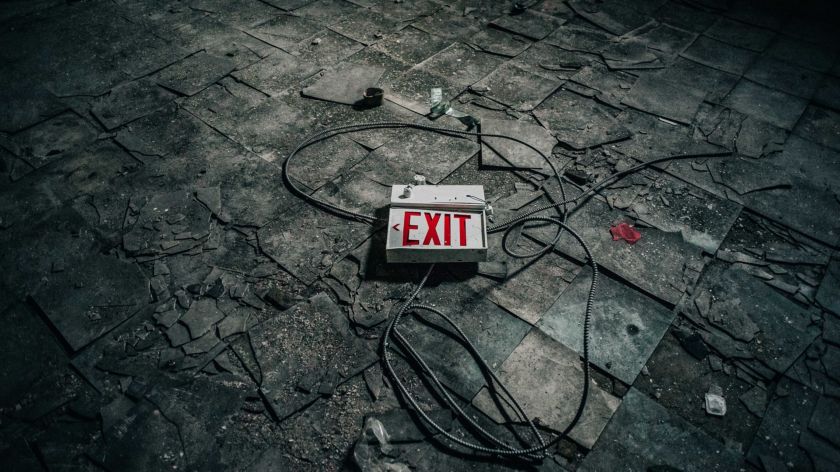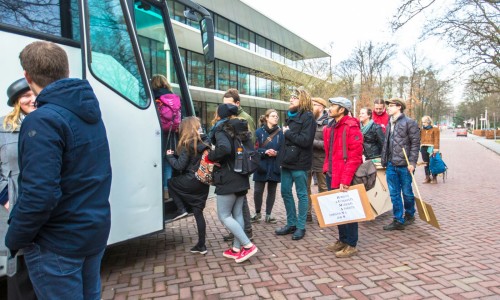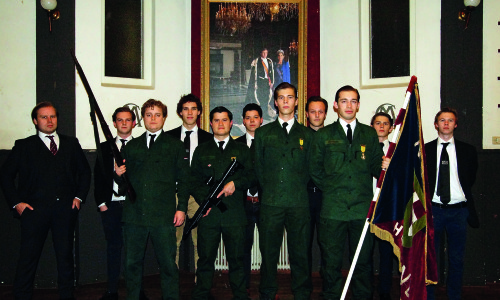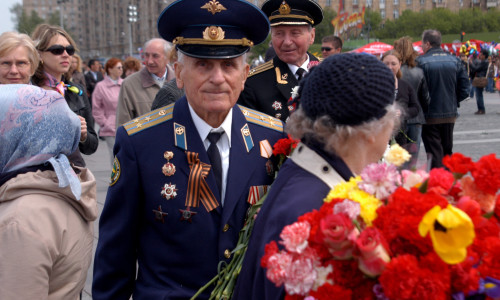Plan for educational escape room under Erasmus building
Radboud University plans to open an educational escape room in April. As part of this physical adventure game, visitors can assume the role of Nijmegen students in the spring of 1943, when the university was closed following a conflict with German occupiers.
The university has chosen the basement of the Erasmus building as its ideal location. Fundraiser Eelco Keij, who conceived the idea together with university historians, stresses that the escape room is more than just a game. ‘It’s a way to highlight a poignant moment in the university’s history.’
The destroyed psychology laboratory
That moment transpired in April 1943, when the German occupiers demanded that all universities have their students sign a declaration of loyalty to the Germans. Nijmegen Rector Magnificus Bernard Hermesdorf refused out of principle, deciding instead to close the university. Radboud was the only university to come to such a drastic decision.
‘Visitors to the educational escape room will be presented with difficult moral dilemmas’, says university historian Jan Brabers, who helped to flesh out the plan. ‘When the university closed, the students could decide to work in the German war industry or go into hiding. The latter was extremely risky, as the Germans threatened to retaliate by arresting their family members, among other things. These students faced an impossible decision.’
Resistance
Jozef van Hövell van Wezeveld en Westerflier, former president of the Carolus Magnus student association, played an important role by leading the student resistance during the Second World War. Visitors will step into his friends’ shoes and make decisions that will affect the course of the game. According to Brabers, Jozef’s student room may serve as the décor for the escape room.
Unfortunately, things didn’t end well for the law student: he died in 1945 in the German concentration camp Neuengamme. The current president of Carolus Magnus, Kevin Brinkers, is proud that his predecessor has been given such a prominent role in the escape room. Jozef continues to play an important role in the student association, as his story is share with all new members during the Carolus Magnus orientation.
Funding
The educational escape room will not just intended for university students and staff. ‘We hope it will draw other people to our campus as well’, says Keij. ‘We want to attract young people in particular, but it will be open to people of all ages.’ The university plans to offer the game in Dutch, English and German. Keij is not yet sure what the entry price will be. ‘The university is paying a fair share, but we’re also looking for external funds in the hope of keeping the entry price as low as possible for students.’
Unfortunately, the story of Van Hövell van Wezeveld en Westerflier is not widely known among the general public. ‘Surprisingly, very few people know that the university closed down during the Second World War’, says Keij. This historic event will have happened 75 years ago in April 2018. Keij believes this momentous occasion is the perfect time to open the escape room.
According to historian Jan Brabers, the story behind the escape room is similar to that of the classic Soldier of Orange. ‘This is the Nijmegen version of that story.’ He believes the university’s closure is something to be proud of. ‘It’s a testament to an unparalleled moral purity and something that is worthy of widespread recognition.’
The destroyed building in the photo above is the university’s psychology laboratory, which was set on fire by the Germans near the end of the Second World War. The photo is from the book Exfoto. Een halve eeuw Katholieke Universiteit Nijmegen in beeld (‘A half-century of images from the Catholic University of Nijmegen’; Bilthoven 1974). The photo of Jozef van Hövell van Wezeveld en Westerflier is from: Gedenkboek 1940-1945 (‘Commemorative book’), compiled and published on behalf of the union of Catholic student associations in the Netherlands (Leiden, 1947).




